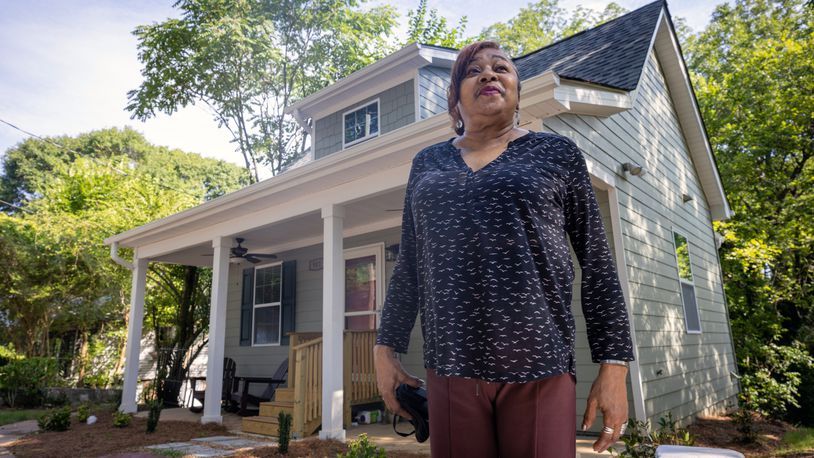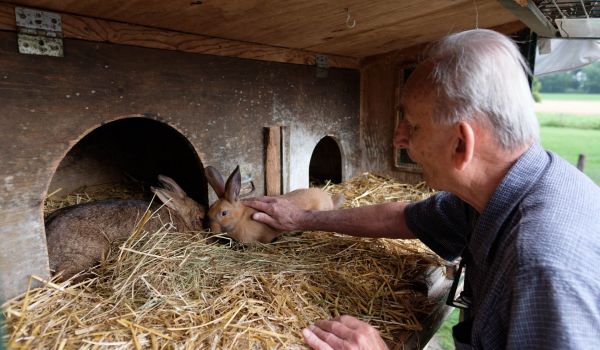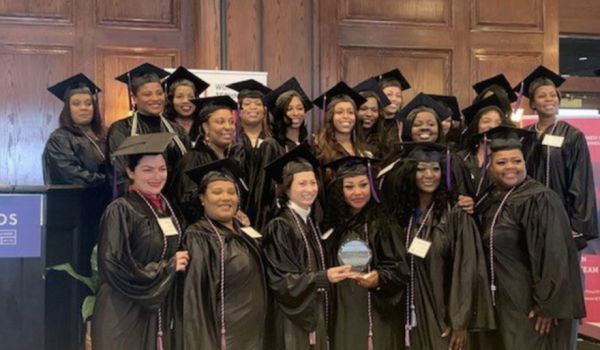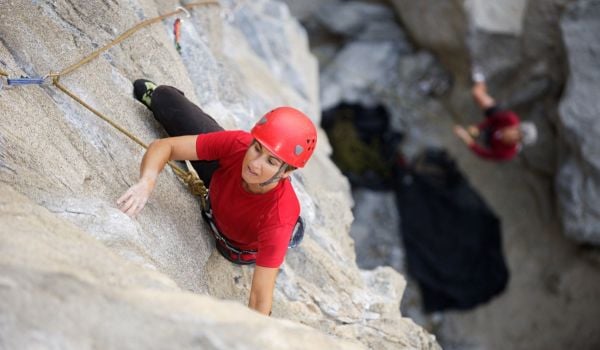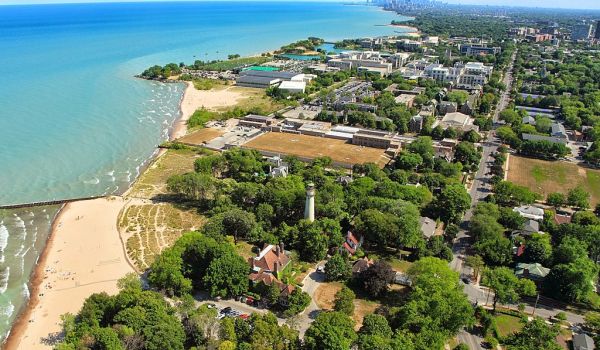In 2019, health concerns led Deborah Glover to Westside Empowerment Center, a health services center in Atlanta’s Westside established by CHRIS180, a local nonprofit dedicated to healing children and families who have experienced trauma.
Glover needed help to manage her high blood pressure and pain but when health workers asked if there was anything else on her mind, she mentioned that she didn’t have running water in her bathroom. Could they help her add a functional bathroom to the house?
Contractors determined it was not feasible to renovate the Washington Park home that her family had owned since the 1930s.
There would be no new bathroom, but CHRIS 180 had a proposal.
“They said, we’re going to do something for you, Mrs. Glover … we’re going to build you a house,” Glover said. “I was stunned.”
Glover, 72, was overcome with emotion when she moved into a new home in late June. But the home is more than a new structure. It’s an innovative affordable housing solution and an experiment in intergenerational living because Glover will reside with young mothers in need of temporary housing.
“They have kids and there may be some way that I can help. If I can be of assistance and offer a little good advice … I feel good about that,” Glover said. But the arrangement offers a benefit to her as well, she said. “As long as someone is here, I don’t have to grow old alone.”
In the 10-county metro area, nearly 41% of all senior-headed households are headed by someone 65 or older living alone, according to data from Atlanta Regional Commission. That population is particularly high in Fayette and Cherokee counties. In 2019, 51% and 42% respectively of senior-headed households in those areas were headed by someone 65 and older living alone.
Since 1971, Glover lived in the home that her relatives had settled in decades earlier. The neighborhood, in Atlanta’s historic Westside, was established in 1919 as the first planned Black suburb in Atlanta.
Glover and her husband were able to purchase the home from Glover’s godmother (her grandmother’s cousin) who had died without a will. Keeping the property in the family was important to Glover.
“Having a place to call my own and knowing you could live there and die there, that was very appealing to me,” Glover said. Buying it “honored my godmother who had paved the way … that is why I cared so much about it.”
But a series of transitions, beginning in 1998, set her family on a financial path from which they could not recover. Life came at the young couple fast, said Glover. They were paying for a home, a car, bills and a baby. They had to work their way out of foreclosure several times but managed to pay off the home in the 1980s.
The next decade, when she and her husband were both out of work, he for illness and she as family caregiver, the home began to fall into disrepair.
First, they disconnected the telephone. Then they went without heat. The lights were off or on depending on whether they had the money to pay the bills. Glover would search the floor of the house for pennies and nickels to make ends meet. “We could only keep up with our basic needs,” she said.
After Glover’s husband died, followed by her daughter several years later, Glover was living alone in a home without basic accommodations, her health was failing, and she was scared. Connecting with CHRIS 180 was a godsend, she said.
Contributions from Atlanta Women’s Health Group, MicroLife Institute and other donors, funded the home, which is owned by CHRIS 180. The organization pays all costs of running the house and will select the young mothers to be placed in the home through its outreach and community housing program.
The young mothers, up to two at any given time, and their children will live in their own units and will receive services from CHRIS 180. The housing is designed to be temporary for these families — about three months — and Glover will serve as a stable presence to the women during their stay.
“During a housing crisis across our city, this project will provide support to young mothers trying to find safety during difficult times,” said Kathy Colbenson, president and CEO of CHRIS 180. “For decades, we have provided stability and support to those experiencing homelessness, and we are grateful to Mrs. Glover for being willing to help us pilot this innovative program that will allow women and their children the opportunity to get back on their feet.”
CHRIS 180 has no immediate plans to build additional homes like this one, according to a spokeswoman, though company leaders hope other groups might use the program as a model.
Mayor Andre Dickens has the goal of preserving or building 20,000 affordable housing units in eight years, but organizations like CHRIS 180 can help fill gaps right now by exploring unconventional ways to address housing problems that impact both young and old residents, particularly those with limited incomes.
For Glover, the opportunity to live in a new home on her family property brings her life full circle — back to the intergenerational living she experienced as a young girl and now, as an elder, in the position to give hard won wisdom to young women.
“It makes me feel better to have people in the house with me. I feel a sense of security,” Glover said. “We can help each other out, one way or another.”
This story originally appeared in The Atlanta Journal-Constitution and is reprinted here as part of the SoJo Exchange from the Solutions Journalism Network, a nonprofit organization dedicated to rigorous reporting about responses to social problems.
Nedra Rhone is the lifestyle columnist for The Atlanta Journal-Constitution.

